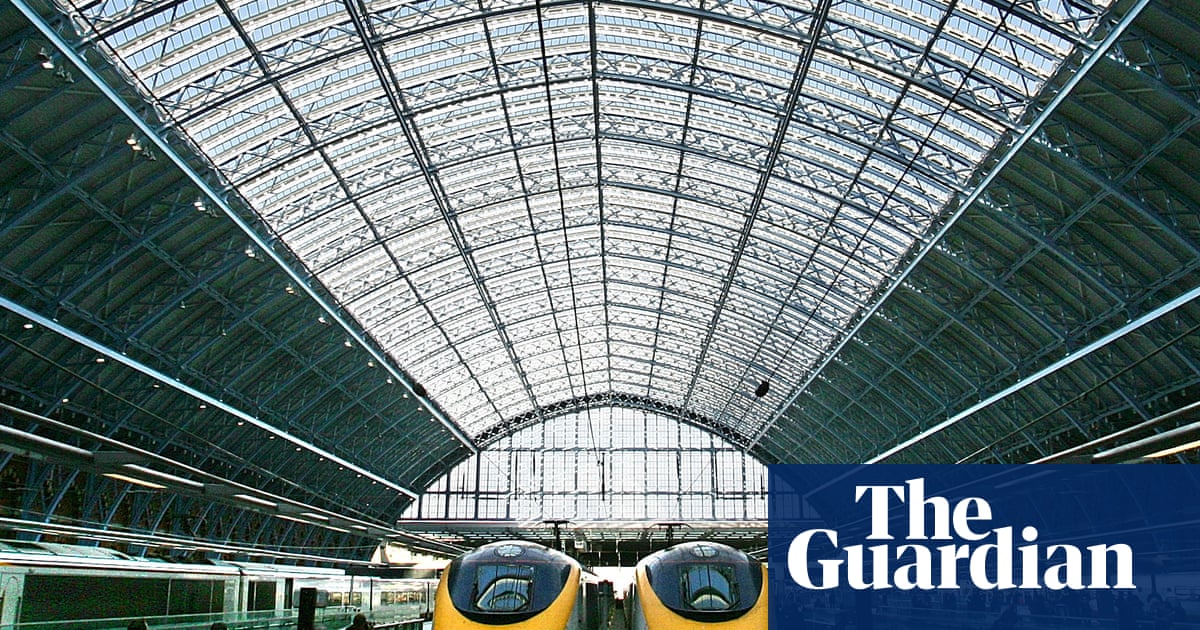Eurostar has vowed to run direct trains from the UK to Germany andSwitzerland, as it attempts to fend off potential competitors eyeing its London depot space.
The cross-Channel rail operator’s chief executive, Gwendoline Cazenave, said she had no doubt the direct services would run in the early 2030s despite the failure ofprevious venturesto connect London and Frankfurt.
Eurostar said the conditions were now “finally right” and it was ready for a “new golden age of international sustainable travel”, as it reiterated plans to buy up to 50 new trains.
Total passenger numbers for Eurostar grew 5% last year, and a number of other possible players have announced plans to break into its monopoly on train services between Britain and France.
However, the rail regulator, the Office of Rail and Road (ORR), has said that there is onlydepot space in London for one more operator– or for Eurostar to expand.
The ORR has asked Eurostar and its rivals to submit plans, for a decision later this year, on how to allocate the space in the Temple Mills depot in eastLondon.
Sir Richard Branson’s Virgin group hasannounced plansfor a 12-train cross-Channel service, while a similar-sized operation could be run by a British startup, Gemini Trains, chaired by the Labour peer Lord Berkeley. The Italian state railway FS Italiane is also looking to enter the market in a joint venturewith a Spanish company, Evolyn.
Eurostar has insisted there is no space in the depot, particularly if its own growth plans go ahead. It has indicated it would help fund a new depot, although it has called on the UK government to develop a “clear national strategy for supporting international rail”.
It is targeting direct trains from London to Frankfurt and Geneva, taking about five hours to the German financial hub and about 20 minutes more to the Swiss city.
It said that the number of flights operating on the routes showed the strong demand for travel – and many business and leisure passengers would now wish to take the train instead to travel more sustainably. The next generation of trains would also be able to handle the complexities of different systems and these longer routes.
Creating the new connections will require a number of hurdles to be overcome, including establishing border controls, station infrastructure, and timetable paths, a spokesperson said.
Sign up toBusiness Today
Get set for the working day – we'll point you to all the business news and analysis you need every morning
after newsletter promotion
However, Cazenave told the PA news agency that she had “no doubt” the new direct services would happen because of the “willingness” of Eurostar, passengers and governments.
The UK and Switzerland signed a memorandum of understanding last month aimed at establishing direct train services between the countries.
Eurostar said its revenues grew 2% to €2bn (£1.7bn) in 2024, with passenger numbers across its services – including those within France, Belgium, the Netherlands andGermany– up to 19.5 million. It has yet to select a manufacturer for its planned €2bn train order.
Eurostar, meanwhile, confirmed it will boost the frequency of its direct trains to the Netherlands after the completion of building work at the international terminus in Amsterdam in February, allowing it to board a full complement of 850 passengers. A fourth daily return service between London St Pancras and Amsterdam will run from 9 September, and a fifth one will start in mid-December.
